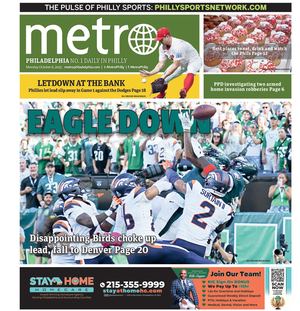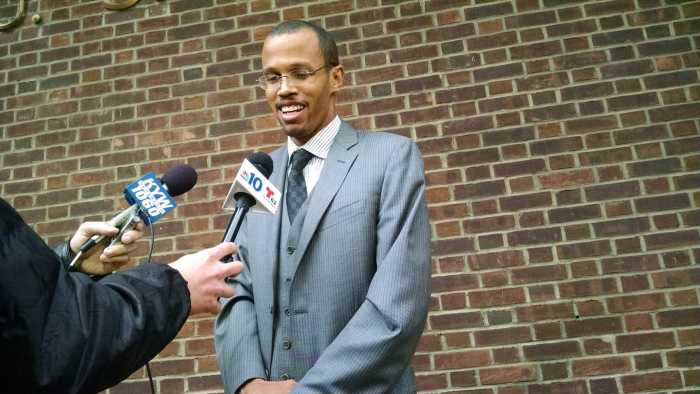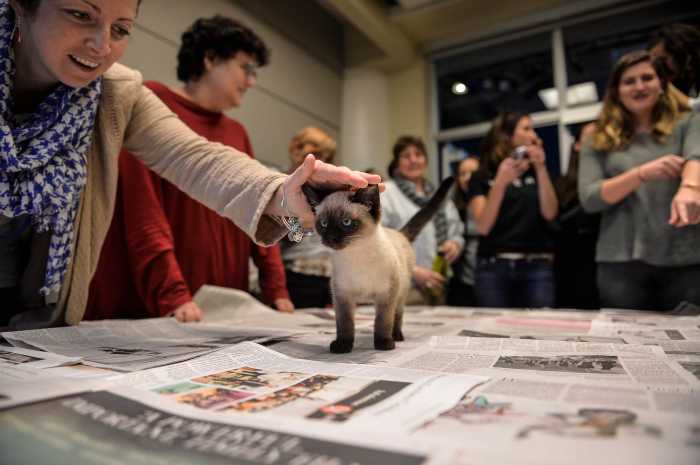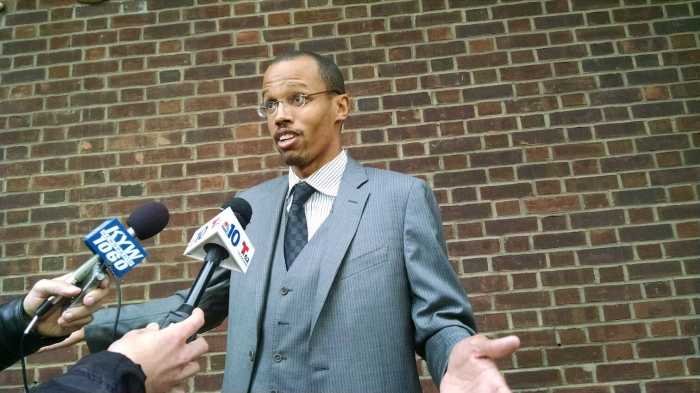In a crowded room of the Pennsylvania Convention Center on Friday, thousands of students grabbed piles of literature about how to apply to schools touting specializations in art, science, ROTC, and media communications. This wasn’t a college fair, and these weren’t high school seniors.
The students were mostly 8th-graders, who, sometimes on their own and sometimes with parents or teachers, were trying to figure out where they would go to high school.
“The process is a lot like filling out an application for college,” said Nikki Tellis, a parent and administrator at Global Leadership Charter School, “There are letters of recommendation, essays and test scores.” RELATED:In Philly, a prom with a little help from friends, and strangers This is somewhat of an annual ritual in the Philadelphia School District, which has long had magnet schools which field far more applications than there are slots,. and charter schools touting specialized themes, solid discipline or higher test scores. They were joined by traditional neighborhood high schools, which come to the fair touting specialized career programs within the public school system. Add to that mix citywide admissions schools, which, like charter schools, offer specialized themes, but unlike magnet schools, do not require high test scores and grades to get in. The array of choices can be dizzying.
“It’s very overwhelming,” said Shannon Norman. “The schools have a lot to offer, but we’re looking for a school that will challenge him.
Him, in this case was her son Desmond, who, unlike a lot of this crowd, was a home-schooled 10th-grader, looking for a school to spend his junior and senior year.
He wants to be a psychiatrist, and said he was interested in Science Leadership Academy at Beeber.
“It’s interesting to see how many schools there are,” Desmond said.
RELATED:John Oliver explains everything you need to know in high school The administrators, teachers and students say finding a match isn’t easy.
At a certain point, students will be forced to confront their interests, they abilities, and the chances of getting in.
“When it’s time to make a choice the fantasy is gone,” said Abdul-Mubdi Muhammad, principal of John Bartram High School.
Students in Bartram’s catchment who don’t make applications to other schools will likely end up at Bartram. But it’s also true that students from outside Bartram can, and do, apply to the school because it offers career training in design, film and video production or because it offers in-class extra-curricular courses in chess. “Every school has a decent number of applicants, because students have to make that choice,” Muhammad said.
But overshadowing such fairs are questions of equity. In a city this large, there are students who can’t manage the application process, or whose parents don’t have the language skills or the motivation to help. “If you don’t have a parent that cares about this, you are stuck,” said Lori Bartol.
She attended the fair with her daughter Leandra Brinkmann, a 7th-grader, hoping to get pointers for a choice that is years away.
“It’s pretty crazy that Philadelphia has to be like this,” Bartol said. “You should just be able to send your kids to a school, without having to worry about fate, your parents, what neighborhood you are born into, or how well you do on those ridiculous tests.”
For Philly kids, grades, tests and letters of recommendation — for high school
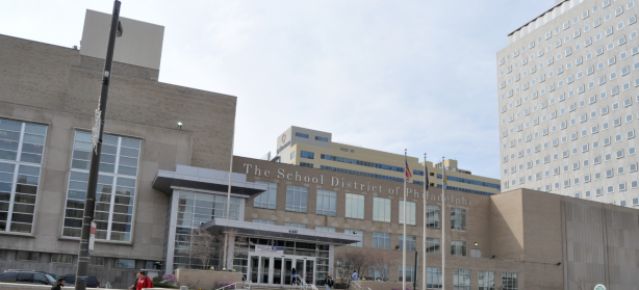
Rikard Larma
